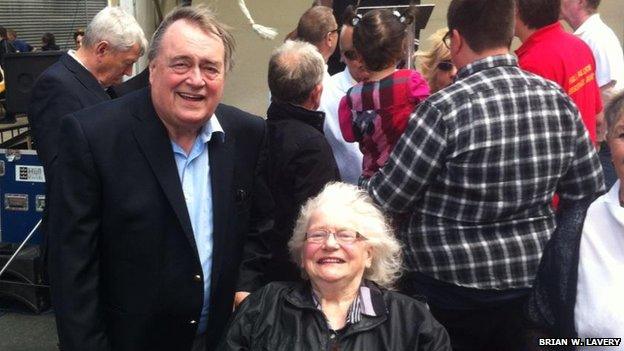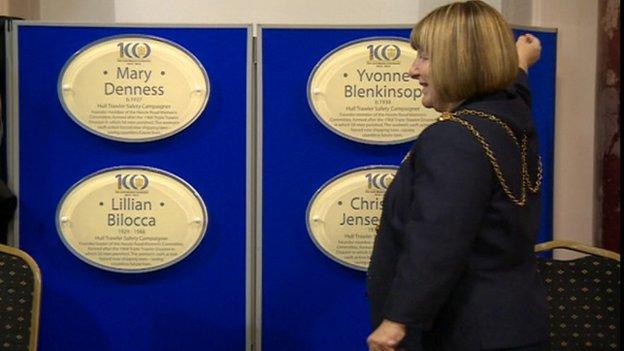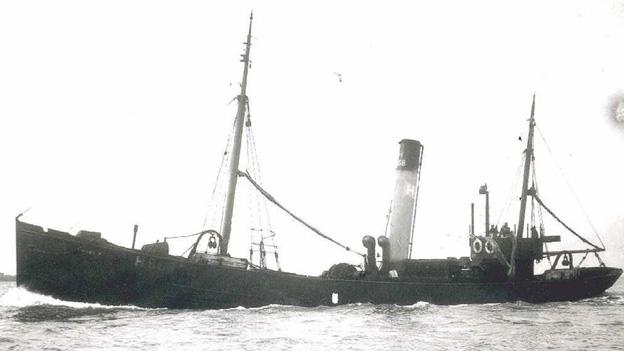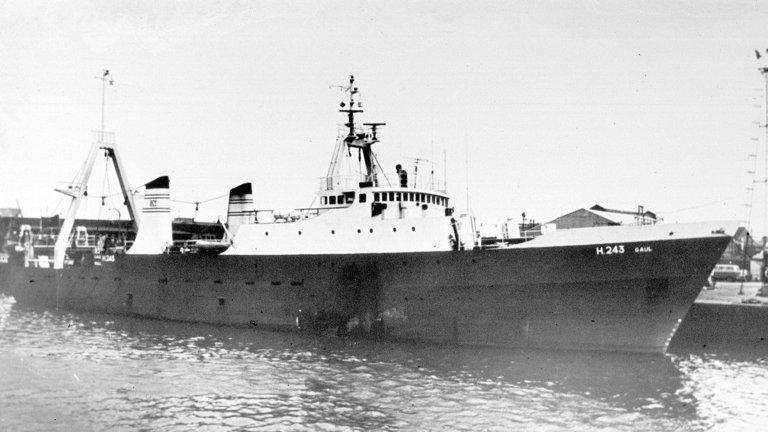Hundreds honour Hull women trawler safety fighters
- Published

Mary Denness was among the four women who were honoured at a ceremony attended by Lord John Prescott and Alan Johnson
Hundreds of people have gathered in Hull to commemorate four women who battled to improve safety conditions on board North Sea trawlers.
The women launched their campaign following the sinking of three ships in 1968 with the loss of 58 lives.
They forced the introduction of new safety measures, including all ships having a full-time radio operator, after lobbying the government.
Eight benches were unveiled during a ceremony in the Boulevard, Hessle Road.
Four of the benches are dedicated to the campaigners Lillian Bilocca, Christine Jensen, Mary Denness and Yvonne Blenkinsop.
Three others commemorate the Hull trawlers - St Romanus, Kingston Peridot and Ross Cleveland - that all sunk in quick succession in the tragedy. Only one man survived.
A bench is also dedicated to The Gaul, which sunk off the Norwegian coast in 1974 with the loss of 36 crewmen.
MP Alan Johnson and Lord John Prescott were among those who attended the unveiling.
Dr Brian Lavery, who wrote a book telling the story of the four women, said: "The last time the traffic in Hessle Road was stopped by hundreds of people on that site in the Boulevard was in 1968 when Lillian Bilocca led the fishwives' uprising."
The four, who were called Headscarf Revolutionaries and lived in the Hull fishing community of Hessle Road, gathered a 10,000 signature petition calling for reform after the triple trawler tragedy.
Ms Bilocca led a delegation to Parliament and eventually met prime minister Harold Wilson.
Last month a ceremony was held at the Maritime Museum in the city on what would have been Ms Bilocca's 86th birthday. She died in 1988.
Ms Jensen died in 2001.
- Published26 May 2015

- Published4 November 2014

- Published13 October 2014
